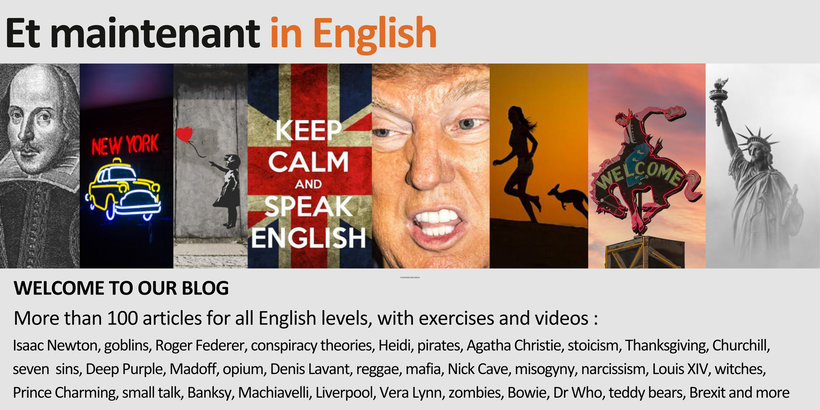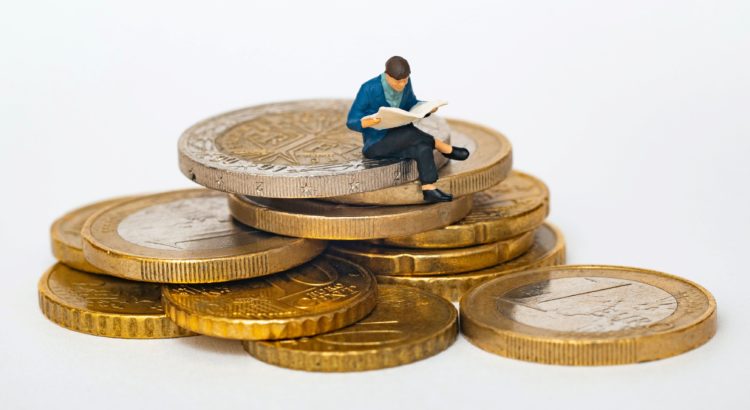Level B1 and above
Have you ever been to a dinner party where someone mentions the Euro Millions? I bet you a lottery ticket that you have.
- First and second conditionals in English, with exercises
Written and compiled by Garry Littman and Benedicte Gravrand – The Language House
Have you ever been to a dinner party where someone mentions the Euro Millions? I bet you a lottery ticket that you have.
Sebastien: “Remember that English teacher from the Valais? First time she bought a ticket and, holy cow, she won €6.5 million. Unbelievable!”
Pause. Smiles. Then someone asks: What would you do if you won Euro Millions? Aah… the great dinner party question!
And welcome to the conditionals – where the possibility of winning is conditional upon whether something is possible or not.
Theresa replies: “If I won, I would buy a chalet in Grimenz with a huge swimming pool. But, you know, I never buy lottery tickets. Waste of money, if you ask me.”
Theresa has no chance of winning/it’s impossible/ because she never buys tickets.
This is what we call the second conditional. These events and outcomes are impossible or just wild dreams.
Other examples of the second conditional:
If I were you, I would leave him.
If I was the prince of England, I wouldn’t live in the palace.
If I lived in Spain, it would definitely be in Mallorca.
If I was the boss, I would give myself a raise.
But, back at the dinner party, Janice has a different response:
“Funny you should ask that. I told Ibrahim in the shop yesterday, when I bought my ticket, ‘If I win, Ibrahim, I will buy both you and me a new car.’”
Janice has a possibility, however small. She bought a ticket. It’s possible she might win something.
“If I win even CHF 5, I will invite Ibrahim to dinner.”
This is the first conditional. There is a possibility. It might happen.
Other examples of the first conditional:
If the weather is warm tomorrow, I will go for a swim.
If I finish work before 6pm, I will meet you for a drink at the Ethno Club.
If I receive a bonus this year, I will give it to the Save the Seals campaign.
Compare:
George, aged 12:
If I were president of Switzerland, I would introduce a three-day weekend. A dream not based in reality. (second conditional)
An ambitious politician named Pierre:
When I am president, I will introduce a six-day working week. It’s possible, it’s part of his cunning career plan. (first conditional)
The first and second conditional are the most popular forms of the conditionals.
They have their own special grammar rules.
First conditional: Real or probable situation in the future
We use the first conditional to talk about possible plans, promises, warnings, threats or to persuade someone. Future condition + result
If (or when, unless) + present simple, will (or be going to, can, imperative) + infinitive
(or the other way around without the comma (,) in the middle)
- If we play tennis, I’ll win – or – I’ll win if we play
- Unless it rains tomorrow, I’m going to paint the window frames.
- If you wake up early this weekend, you can study before lunch.
- If the phone rings, I will answer
If you follow me, I will take you to her office…
Alan: Hello, I am here to see Mrs. O’Brian.
Bertrand: Certainly, sir. If you follow me, I will take you to her office.
A: Very well.
B: If you wait here, sir, I will get you an application form.
A: Oh, I am not here for a job.
B: If you are not here for a job, then why are you here?
A: I have an appointment with her.
B: If you have an appointment with Mrs. O’Brian, then you are going to have a job interview.
A: No, that’s not it, you see…
B: And she can only see you if you fill in the application form.
A: Well, let me explain..
B: And if she cannot see you, please leave.
A: But Mrs. O’Brian is my wife, you see, and I am here to take her to lunch. Today is our anniversary…
B: Oh, I see. So, if you are Mrs. O’Brian’s husband, then I am going to let her know straight away.
Your turn!
Fill in the gaps with the verbs in brackets, conjugated in the correct tense.
Cathy: If I … enough time tomorrow, I … and see you. (have / come)
Debra: And if you … and see me, what … we …? (come / do)
C: If I … tomorrow, we … go and see that new cabaret. (come / go)
D: A cabaret? What about a restaurant instead?
C: Sure, but if we … to the restaurant, it … my treat. (go / be)
D: That’s really nice of you. And if you … the bill, … I … the restaurant? (pay / can/choose)
C: No.
D: But if we … the bill, I … the restaurant, right? (share / can/choose)
C: Sure. We’ll go Dutch.
Note:
- “go Dutch” is an expression. If people go Dutch, each of them pays for their own meal, drinks, entertainment etc. when they go somewhere together.
- You say “my treat” when you pay for something for someone else. I’d like this lunch to be my treat.
Answer key:
Cathy: If I have free time tomorrow, I’ll come and see you.
Debra: And if you come and see me, what shall we do?
C: If I come tomorrow, we can go and see that new cabaret.
D: A cabaret? Mmm… What about a restaurant instead?
C: Sure, but if we go to the restaurant, it will be my treat.
D: That’s really nice of you. And if you pay the bill, can I choose the restaurant?
C: No.
D: But if we share the bill, I can choose the restaurant, right?
C: Sure. We’ll go Dutch.
If I sing you a love song, Bonnie Tyler (with lyrics)
Second conditional: Unreal or improbable situations
We use the second conditional to talk about an improbable or hypothetical situation and its consequence. Improbable condition + consequence
If + past simple, would (or could, might, should) + infinitive
(or the other way around without the comma (,) in the middle)
If we played tennis, I would win – or – I would win if we played tennis.
If I knew her name, I would tell you.
If I were (subjunctive of “was”) rich, I would spend all my time travelling.
If I had another £500, I could buy a car.
If you asked me nicely, I might get you a drink.
What would you do if you lost your job?
If I were a rich man – Fiddle on the Roof (with lyrics)
If I were rich/ if I became president…
Edward: Tell me, what would you do if I told that I could one day become the president of the country?
Frida: I would tell you, you might be dreaming…
E: Well, I might well become the president one day.
F: Is that so? Tell me more.
E: I have just registered as a candidate.
F: Right, so you are a long way to becoming a president. What would you do if you became president?
E: If I became president, I would replace the cabinet of ministers…
F: I guess they deserve it…
E: And I would start a programme to colonise the moon.
F: That’s strange. Why would you do such a thing?
E: If we colonised the moon, we would solve the global warming problem.
F: That doesn’t make sense. If we were to colonise the moon, we’d consume a lot of fossil fuel just to send people there.
E: Well, that’s my plan. If I became a presidential candidate, I would promise the moon.
Note: “promise the moon” is a phrase which means making extravagant promises that are unlikely to be fulfilled. E.g. interactive technology titillates and promises the moon but delivers nothing.
If I Were A Boy – Beyoncé (with lyrics)
Your turn!
Fill in the gaps with the verbs in brackets, conjugated in the correct tense.
Greg: What … you … if you won the lottery? (do)
Henrietta: I … a house, and a yacht. And a private jet. What about you? (buy)
G: It depends. If I … less than a million, I … (win / travel)
If I … several million, then I … properties in different countries. (win / buy)
H: Where … you … them? (buy)
G: I … a house in Madagascar and a house in Canada. I … in Canada, but … the winters in Madagascar. (buy / live / spend)
H: If I … the lottery, I … also … money to my family and to some charities. (win / give)
G: That’s good. But if you … money to your family, you … be careful. (give / have to)
H: Why?
G: Because if you became rich, they would always want more. (become / want)
If I … the lottery, I … to keep a low profile. (win / try)
Note: “keep a low profile” is a phrase that means to try to stop people from noticing you, e.g. He was advised to keep a low profile in court.
Answer key:
Greg: What would you do if you won the lottery?
Henrietta: I would buy a house, and a yacht. And a private jet. What about you?
G: It depends. If I won less than a million, I would travel. If I won several million, then I would buy properties in different countries.
H: Where would you buy them?
G: I would buy a house in Madagascar and a house in Canada. I would live in Canada, but spend the winters in Madagascar.
H: If I won the lottery, I would also give money to my family and to some charities.
G: That’s good. But if you gave money to your family, you would have to be careful.
H: Why?
G: Because if you became rich, they would always want more. If I won the lottery, I would try to keep a low profile.


